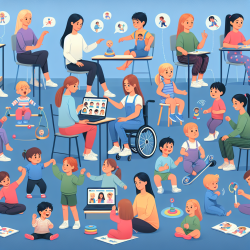In the ever-evolving landscape of educational support, online counseling is emerging as a pivotal tool for enhancing student well-being. A recent study titled "College of education students’ attitude towards the use of online information dissemination tools for counseling in Ghana" sheds light on this growing trend. This research offers valuable insights that can help practitioners improve their skills and outcomes by leveraging online counseling tools.
Understanding the Research
The study, conducted by Kankam and Adinkrah, explored the attitudes of college students towards online counseling. Using the Theory of Planned Behavior (TPB) as a framework, the researchers surveyed 411 students from two Ghanaian colleges of education. The findings revealed a significant willingness among students to engage in online counseling, with 94% indicating they would use such services if available.
Key Findings
- High Awareness: 79% of the surveyed students were aware of online counseling services.
- Usage Rates: 91% of participants had utilized online counseling in some form, whether through social media, text messaging, or other online platforms.
- Preferred Medium: Students expressed a preference for text-based communication over audio or video calls.
- Academic vs. Personal Issues: While students were more likely to seek online counseling for academic challenges, they were less inclined to use it for relationship or psychological issues.
Implications for Practitioners
These findings have several implications for practitioners looking to integrate online counseling into their services:
- Leverage Existing Platforms: Utilize social media and text messaging to offer counseling services, as these are the preferred mediums for students.
- Focus on Academic Support: Given the higher likelihood of students seeking help for academic issues, tailor your online counseling services to address these needs effectively.
- Educate on Benefits: Conduct workshops or informational sessions to educate students on the benefits of online counseling for personal and psychological issues.
- Hybrid Approach: Consider a hybrid model that combines online and face-to-face counseling to maximize reach and effectiveness.
Encouraging Further Research
While this study provides a strong foundation, there is a need for further research to explore the long-term effectiveness of online counseling and its impact on different student demographics. Practitioners are encouraged to conduct their own studies and share findings to contribute to the growing body of knowledge in this field.
To read the original research paper, please follow this link: College of education students’ attitude towards the use of online information dissemination tools for counseling in Ghana.










